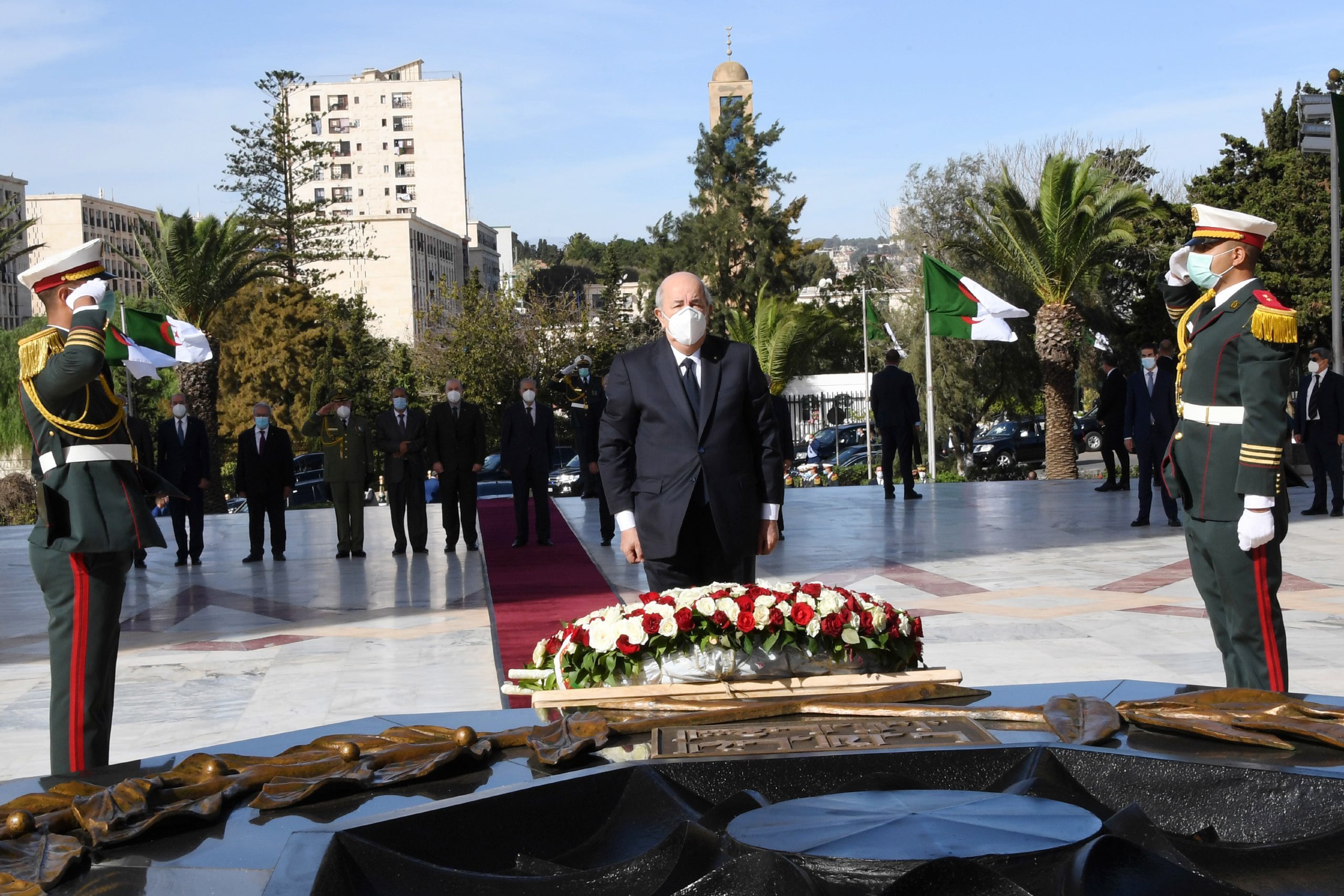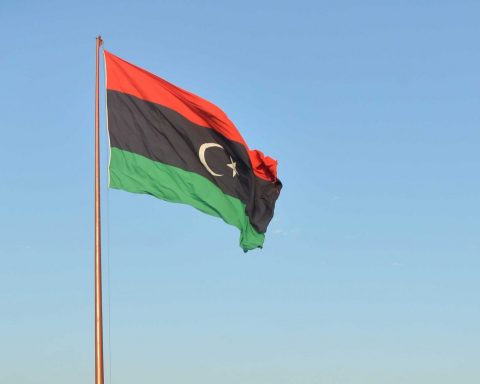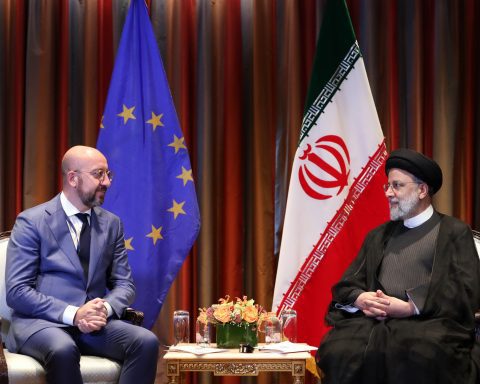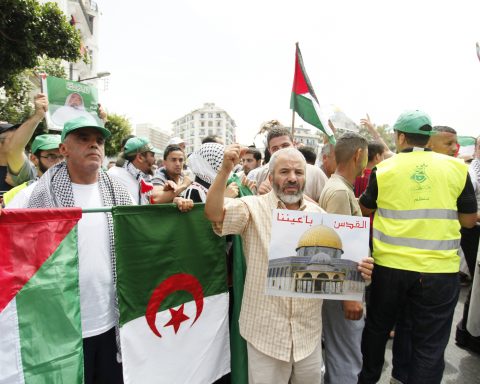Throughout the entire month of March 2022, French public networks, TV, radios, and left-leaning magazines have been running programs and interviews about the commemoration of the 60th anniversary of the Evian Accords, signed between Algeria and France. On March 18, 1962, a milestone agreement was signed between the FLN, a liberation movement that represented the Algerian people, and the ALN, whose military branch fought occupation and injustice against France.
The Evian Accords was the first time that France recognized the independence of Algeria after a bloody armed struggle that lasted eight years, ending 132 years of brutal occupation and identity acculturation. On March 19, a ceasefire was put in place, and Algerians declared that day as a Victory Day.
On the French side, however, the Algeria Liberation War, what French officials and a large segment of society called the “Algerian War,” between November 1, 1954 – March 19, 1962, was one of the toughest periods of the French Republic’s political and intellectual parameters that shaped France’s post-French imperialism. Hence, the question of French collective memory did not show any guilt nor acknowledgment of the French army’s means to wipe out the Algerian resistance. The French Army used napalm in the remote country’s mountains and villages and used torture in the so-called administrative military section and prisons.
State of denial
Based on Paris’ promises since 2012, former President Francois Hollande tried to address the memory question, yet nothing has been achieved — President Emmanuel Macron, France’s incumbent president, will be facing tenacious candidates from right-wing parties, including the National Rally party leader Marine Le Pen, whose popularity is on the rise in every national opinion poll for an eventual face-off with President Macron in April 2022.
The question of the French denial implies the equation of a dominance-dominated paradigm. What makes the French deny what happened in the 1954-1962 period is the narrative of the colonization process that took place on July 5, 1830, when France conquered Algeria under the ruling of Dey Hussein, who was the last Dey of the Deylik of Algiers. In the years that followed the French invasion and occupation of Algeria, all kinds of violence, misery, and injustice were rolled out on a scale that people in France still do not know.
On this stance, the thorny question of repentance is still poisoning the “abnormal” relations between the two countries. Last year, President Emmanuel Macron got Benjamin Stora’s report, stating the colonization and the Algerian Liberation War. The main recommendations of this report is the creation of a joint “Memory and Truth” commission. Commemorations, restitution, the recognition of certain crimes, the publication of lists of the disappeared, access to archives, and the creation of places of memory are among the other proposals. In 2017, then-candidate Macron called colonization a “crime against humanity.” France is preparing to confront its Algerian past.
Yet, the memory question continues to prevent officials both in Algeria and in France from turning the page and establishing “normal” relations.
Today, historians in France are pushing for the truth to be told. Yet, on this account of the ongoing toxic political campaign three weeks before the April 10 presidential election, the question of repentance is almost a sacrosanct sentiment among the candidates of the far-right like Le Pen and Eric Zemmour, who are calling to make an end to the Evian Accords, and France has no shame to show to the country. France had a nation-building role in Algeria or what it called French Algeria. This is also the view of French-Algerian politicians, the so-called “pieds noirs” and “Harkis”.
Post-independence economic and security imperatives
What could be the future of the “extraordinary” relations between France and Algeria? One could think that nothing should really change in these long years of ambiguous relations. The Algerian community in France is gradually becoming a serious lobby. Despite its socio-political and demographic heterogeneity, the Algerian diaspora in France should play a fundamental role in bilateral relations. Particularly, in the economic sector, opening up new ways of commerce exchange and small business creativity like technology services could generate wealth and help Algeria’s economy, leaving out the traditional economic exchanges like natural gas and the automobile sectors which have been the backbone of Algerian-French economic relations.
Thus, French-Algerian relations have been on a neutral shift since the election of President Macron in May 2017, because of the ongoing toxic debate in France on migrants, political Islam, integration, etc. All these societal themes are affecting the progress of bilateral relations between the two countries. As for Algiers, a new foreign policy paradigm and military doctrine was established by the administration of President Abdelmadjid Tebboune in the aftermath of the peaceful popular Hirak protests of 2019.
Algiers, however, is trying to reframe its French policy as a shifting one based on cooperation that could sustain economic development and enhance military and intelligence cooperation between the two countries. Yet, President Macron is like the late Algerian President Abdelaziz Bouteflika, a rhetorician who put French-Algerian relations in permanent ambiguity. Like the late Bouteflika, who had been trying to maintain the paradigm of “extraordinary” relations, former President Houari Boumedienne desired this paradigm because he did not want normal relations with the former Algerian colonizer.
French-Algerian relations are not natural nor extraordinary, and they are not going to get warmer on the eve of a crucial presidential election in France. The two countries will undoubtedly continue to have warm relations, each country staying in its comfortable base zone. There is nothing wrong with that. France should stop looking at Algeria as if it is one of its “administrative” regions. Meanwhile, Algeria should also stop pleading for forgiveness because its Liberation War made history, and it should let its story narrate global memory.
In sum, the Evian Accords came to reflect the balance of power that existed at the time between a nationalist liberation movement on the one hand and a colonial state on the other, which created a new paradigm between the two countries’ relations. Today, Algeria has the right to protect its national interests and diversify its relations with other countries in order to get rid of French tutelage and hegemony in the Maghreb and Sahel region.














